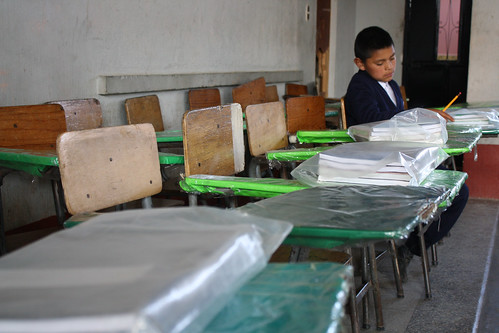Below is an excerpt from the Second Quarter report. You can read the full report here.
Today at La Colina Middle School in Quetzaltenango, Guatemala, you could peek into a classroom to see students working together in groups, pouring over their textbooks. You’d see them discussing the material animatedly with their peers and jotting down ideas in their notebooks.
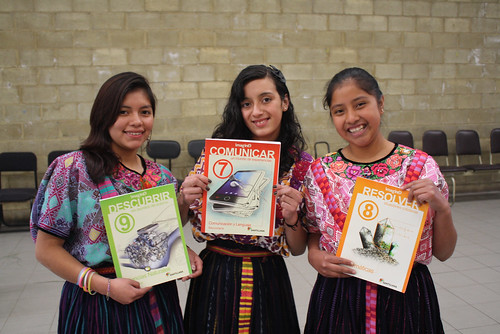
Students at Colegio Intervida show off their brand new CoEd textbooks. Thanks to the Textbook Program’s enhanced teacher training component, the books will become the core of an interactive, student-oriented classroom. Quetzaltenango, Guatemala, 2014.
Outside, you might see the math class students lining up on the basketball court, each one taking the place of a positive or negative number in a number line. A flurry of activity suddenly descends on the court as their teacher, Cristian, instructs the students to find and change places with the peer who shares their absolute values.
No matter where you look at La Colina, you’ll see students eager and excited for learning, thanks to the materials and didactic training provided by Cooperative for Education (CoEd)’s Textbook Program. Similar scenes play out every day at dozens of other schools across Guatemala’s Western Highlands.
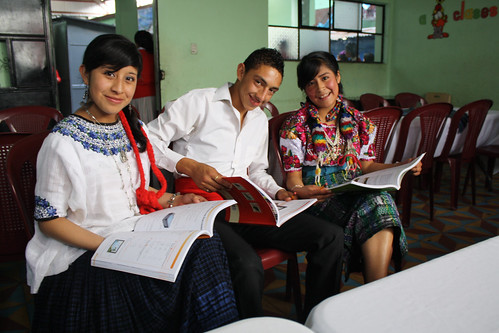
Students at Olintepeque School browse their new textbooks, purchased with money saved through their school’s revolving fund. Quetzaltenango, Guatemala, 2014.
It wasn’t always like this. Silvia, who teaches social studies at La Unión Middle School, remembers a time before her school received CoEd textbooks and corresponding teacher training. “Before, I would start reading to the class and they’d practically fall asleep,” she says. “Now, with the techniques we learned in the training, the class has become much more participatory and interesting.”
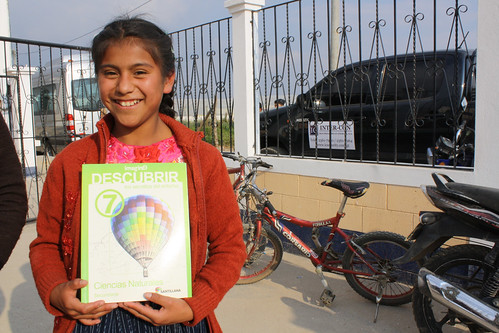
Silvia and Cristian are just two of the 140 teachers in CoEd’s textbook teacher training class this year. The group consists of teachers at the seven schools that received CoEd textbooks in 2014, as well as 28 schools already in the program. In the coming years, our goal is to bring this intensive training to all of our new and existing textbook schools, working at a rate of five community clusters each year. This allows us to keep class sizes small, minimize the need for teacher travel, and provide each teacher with follow-up, in-class observations.
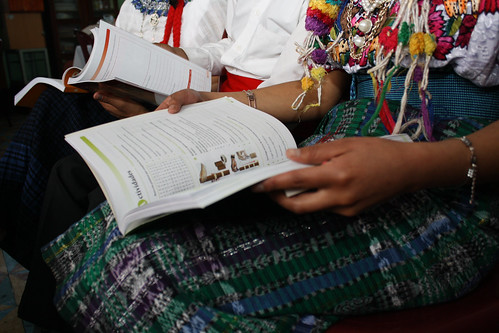
“We’re not used to having people observe our classes, but that’s the way we can become aware of our weaknesses and improve,” says Hilda, who teaches math at Chiquilajá School. “Without the coaching, we’d probably continue to make the same errors.”
You can read the rest of Cooperative for Education’s second quarter report here.

